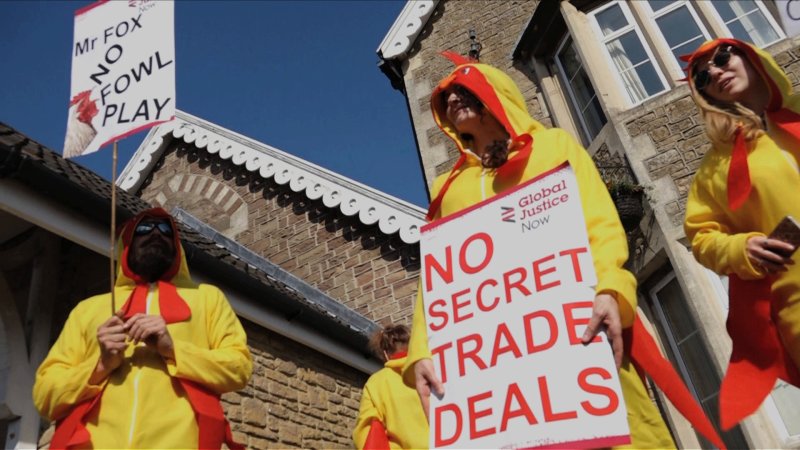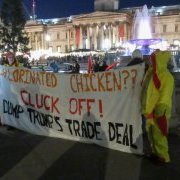
Britain’s vote to leave the EU opens up the possibility of dozens of dangerous trade deals being negotiated with far-reaching effects across the world.
The desire to have an independent trade policy was a key motivating factor for leading proponents of leaving the EU. Through this trade policy, right-wing think tanks and politicians hope to move the British economy closer to the US model of deregulation and liberalisation, and away from what they see as the over regulated protectionism of the European Union. What’s more, they hope to trade far more with emerging and developing economies, building on what they see as Britain’s glorious history of global free trade.
These trade deals could have a serious impact on Britain’s public services and food standards, and threaten to make Britain an even more finance-dependent economy, deeply centralised and unequal – ironically the very conditions that gave rise to Brexit. But the impact globally could be even more serious, as the British government threatens to go into bat for big corporations, using intellectual property, e-commerce, investor protection and procurement rules to rip away standards and regulations that developing countries employ to protect their people, their environment and their right to economic development.
Britain’s new system for negotiating and ratifying trade deals is deeply undemocratic, with the public having no right to information, and members of parliament unable to properly scrutinise, nevermind stop, a trade deal. So the struggle for basic accountability and transparency is one that must go hand-in-hand with attempts to stop dangerous trade deals.
Britain is now a deeply polarised country, where nothing is certain. With Britain’s relationship with the EU unresolved, it is difficult to even know which areas of trade Britain will be able to negotiate. The most ardent free traders tend to favour a ‘no-deal’ Brexit, leaving Britain free to pursue the most extreme free market pacts possible. On the other side, the positive opportunity presented by the current moment is that it has reawakened interest in trade and presents an opportunity to inform the public that a modern trade deal extends well beyond tariffs and quotas. Completely new ways of ‘doing trade’ are being discussed and proposed within political parties in a way not known for many years.
Britain has been seeking to roll over 40 trade deals signed between the EU and third countries, including South Korea, Japan, Canada, Carribbean states, Central America, East and Southern African states. New trade deals with Australia, New Zealand and the US have also been identified as priorities.
Contributed by Nick Dearden, Global Justice Now (last update: August 2019)
Photo: Global Justice Now








